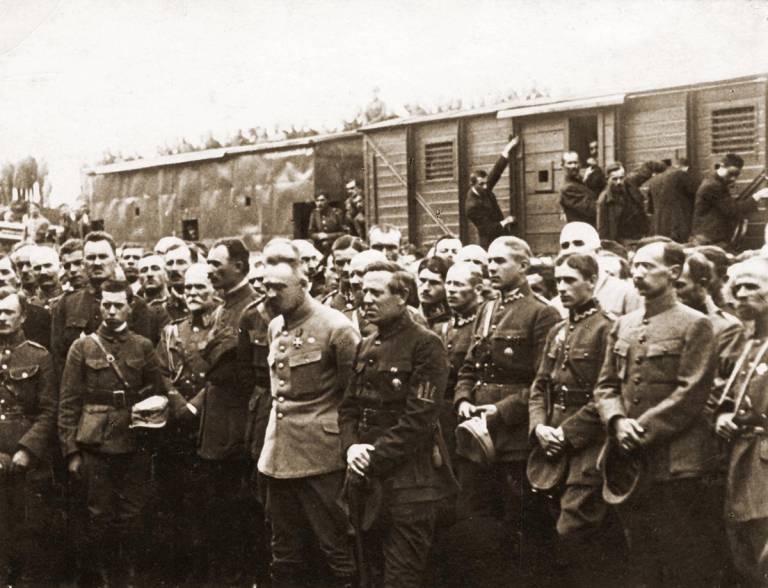Poland and Ukraine in Soviet and Russian imperial strategy: 1919-1920 and 2022-2023
16 May 2023, 6:00 pm–8:00 pm

A SSEES Study of Central Europe seminar with Prof Andrzej Nowak
This event is free.
Event Information
Open to
- All
Availability
- Yes
Cost
- Free
Organiser
-
ssees
Location
-
Masaryk roomUCL School of Slavonic and East European Studies16 Taviton streetLondonWC1H 0BW
How did Soviet Russia form its geopolitical goals on the map of Eastern and Central Europe after the end of the Great War? What place did Lenin, Trotsky and Stalin assign to Ukraine and Poland as their two most important neighbours (former peripheries of the Russian Empire) on that map? How did "Red" Russia react to the independence of these two countries respectively? And how did it try to eliminate them both in the scenario of all-European revolution linking Russia with Germany and in a temporary diplomatic game with western powers (London in the first place)? This is a series of questions that initiate an analysis of imperial geopolitics of Russia and its motives, as they were revealed and reformulated after 1917, and lead towards comparisons and analysis of contemporary ideologies of Russian expansion (imperial "reconquista") in the same direction.
Speaker bio:
Professor Andrzej Nowak is a Polish Sovietologist and historian specializing in nineteenth- and twentieth-century Polish and general history. He is head of the Sub-Department of Eastern European History at the Jagiellonian University Institute of History, and head of the Section for the History of Eastern Europe and Nineteenth- and Twentieth-Century Empires in the Department of the History of the Twentieth Century at the Polish Academy of Sciences. His interests include: the history of Eastern Europe, Polish-Russian relations, and Sovietology. He is author of over 30 books, over 200 scholarly articles and reviews, and over 400 newspaper articles as well as the winner of numerous prizes and distinctions. He is a member of Poland’s National Development Council, the College of the Institute of National Remembrance, and the mixed Polish–Russian Commission on History, and of several other organizations. He is editor-in-Chief of Kwartalnik Historyczny and a member of the board of editors of Dzieje Najnowsze. Among the distinctions he has received are Knight of the Order of the White Eagle, holder of the Commander’s Cross of the Order of Polonia Restituta, and winner of the 2020 Janusz Kurtyka Award.
Image credit: Wikimedia
 Close
Close

